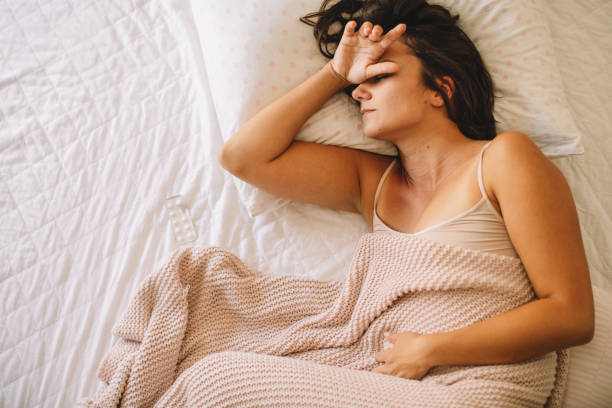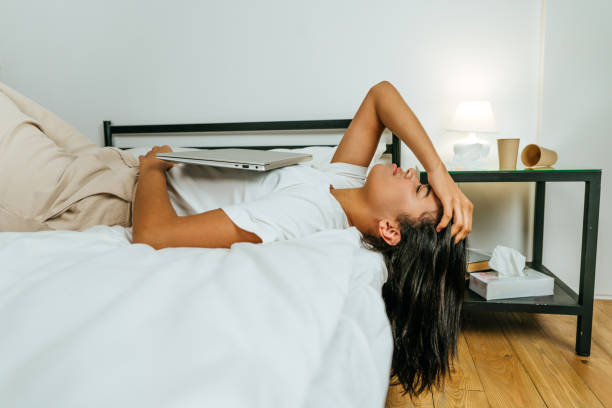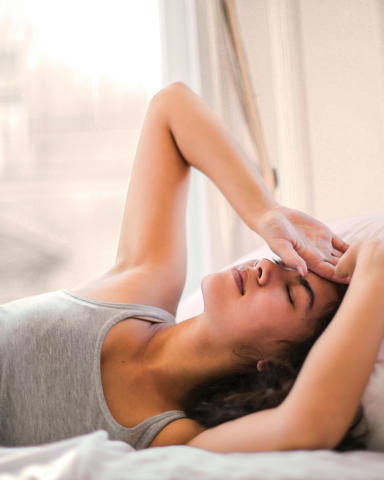Introduction
In an increasingly demanding and fast-paced society, anxiety has become a major concern for many of us. This persistent and excessive feeling of worry can seriously affect our quality of life. It's an experience that can ruin your life, affecting everything from your work to your sleep, and even your relationships. However, it is important to remember that you are not alone and that there are solutions to better manage anxiety. In this article, we will help you improve your well-being through natural methods.
Understanding anxiety
Definition and types of anxiety
Anxiety is more than just nervousness before a big event. It's a condition that can be debilitating, with effects ranging from trouble sleeping to difficulty concentrating. Anxiety disorders can present in different forms, including generalized anxiety, panic disorder, specific phobias, post-traumatic stress disorder, and obsessive-compulsive disorder.
The causes and risk factors of anxiety
The causes of anxiety are as varied as the individuals who suffer from it. Some may have a genetic predisposition to anxiety, while others may develop anxiety disorders following traumatic or stressful events. Risk factors can include chronic health conditions, certain medications, stress, substance use, and even your personality. Being aware of these factors can help you understand anxiety and find the most effective ways to manage it.
The impact of anxiety on daily life
Anxiety can manifest itself in many ways in daily life. It can affect your ability to work, study, sleep, eat, and maintain relationships. It can also cause physical symptoms, such as heart palpitations, headaches and persistent fatigue.
Relaxation methods to manage anxiety
Meditation and mindfulness
Meditation and mindfulness are powerful tools for managing anxiety. They involve focusing your attention on the present moment, helping you dispel anxious thoughts and cultivate a sense of peace and tranquility.
Deep breathing and relaxation exercises
Deep breathing and relaxation exercises can help reduce anxiety by slowing your heart rate and promoting a sense of calm and well-being.
Yoga and tai chi
These disciplines, in addition to being forms of exercise, can also help reduce anxiety. Their regular practice can improve your physical and mental well-being.
The importance of diet and physical activity
A balanced diet to reduce anxiety
Your diet can play a crucial role in managing anxiety. A balanced diet rich in fruits, vegetables, lean proteins, and whole grains can help regulate your mood and reduce anxiety.
The role of physical exercise in the management of anxiety
Regular exercise can help reduce anxiety by releasing endorphins, the feel-good hormones. It can also help improve your sleep and increase your self-confidence.
Stress and anxiety management techniques
Time management and digital detox
Effective time management can reduce stress and anxiety by helping you get organized and prioritize your tasks. Additionally, reducing your time spent on digital devices can also help decrease anxiety.
Cognitive-behavioral therapy (CBT)
CBT is a form of therapy that helps you identify and change negative thoughts and behaviors that may contribute to anxiety. It has been proven to be effective in the treatment of many anxiety disorders.
Natural remedies for anxiety
Medicinal plants and supplements
Herbs like chamomile, passionflower and kava can help reduce anxiety. Additionally, supplements like magnesium, vitamin B, and omega-3 may also be beneficial.
Music and aromatherapy
Listening to music, especially classical music, can help reduce anxiety. Aromatherapy, using essential oils like lavender and jasmine, can also help create a relaxing ambiance.
Quality sleep and anxiety
Quality sleep is essential for managing anxiety. It is therefore important to stick to a regular sleep routine and ensure that your sleep environment is conducive to good rest.
In addition to these natural methods, our Day & Night Roller can also be an effective solution to manage your stress states and improve the quality of your sleep. Applied as a treatment or daily, it acts in a rebalancing manner on the circadian rhythm, to promote rapid falling asleep and a peaceful, peaceful night's sleep.
Conclusion
Managing anxiety can be a challenge, but with the right strategies and a holistic approach, it is possible to find relief. Remember that everyone is different, and what works for one person may not work for another. It may therefore be necessary to try different techniques to find which ones work best for you. If your anxiety becomes too difficult to manage alone, don't hesitate to seek help from a mental health professional.
FAQ
- What are the best natural methods for managing anxiety?
The best natural methods for managing anxiety vary from person to person. However, some approaches include meditation, breathing exercises, regular physical activity, a balanced diet, and the use of certain medicinal plants or supplements like CBD. It is important to speak with a healthcare professional before beginning any new approach to managing anxiety.
- What breathing and relaxation exercises are effective against anxiety?
Breathing exercises, such as deep abdominal breathing, can help reduce anxiety by slowing the heart rate and lowering blood pressure. Relaxation techniques, such as yoga and progressive muscle relaxation, can also help manage anxiety.
- How can diet affect anxiety?
A balanced diet rich in fruits, vegetables, lean proteins, and healthy fats can help regulate levels of stress hormones, such as cortisol. Avoiding processed foods and limiting caffeine and alcohol intake can also help reduce anxiety.
- How can exercise help manage anxiety?
Exercise can help manage anxiety by releasing endorphins, which are feel-good hormones. It can also improve sleep and self-esteem, which can reduce anxiety.
- How can time management and digital detox reduce anxiety?
Time management can help reduce anxiety by avoiding stress related to overwork and overwork. Digital detoxification, or limiting the use of digital devices, can also help reduce anxiety by minimizing exposure to online sources of stress.
- What is cognitive behavioral therapy and how can it help manage anxiety?
Cognitive behavioral therapy (CBT) is a form of therapy that aims to change negative thought patterns that may contribute to anxiety. It can help manage anxiety by teaching strategies to manage stress and anxious thoughts.
- Which natural remedies are effective in combating anxiety?
Some natural remedies that may be effective for anxiety include herbal remedies like chamomile and valerian, supplements like CBD and magnesium, and techniques like aromatherapy and music therapy.
- What are the benefits of quality sleep for anxiety?
Quality sleep can help manage anxiety by reducing fatigue and improving the ability to manage stress. It is therefore crucial to maintain good sleep hygiene to effectively manage anxiety.






